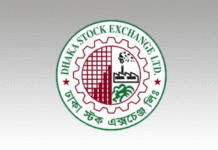Bad loan, the worst category of defaulted loans in the banking sector, increased by 8.08 per cent to Tk 42,158.73 crore in the first three months of this year due to scheduled banks’ failure in recovering classified loans amid rising financial scams.
According to the latest Bangladesh Bank data, the bad loans increased to Tk 42,158.73 crore as of March 31, 2015 from Tk 39,004.18 crore as of December 31, 2014.
The total bad loans in banks were Tk 42,352.86 crore as of September 30, 2014.
As of March 31, 2015, the bad loans accounted for 77.13 per cent of the total defaulted loans of Tk 54,657.69 crore in the banking sector.
The BB data showed that the defaulted loans in the banking sector increased by Tk 4,501.92 crore in the first three months of this year as the central bank had recently unearthed a number of scams in different banks that fuelled the overall non-performing loans.
The BB conducted a number of detailed inspections between January and February at different banks and unearthed significant amount of defaulted loans at the state-owned banks, The Farmers Bank and NRB Commercial Bank.
The bad loans would have increased more at the end of first quarter of 2015 if the central bank did not continue its relaxed rescheduling policy for the defaulted loans.
Due to the relaxed policy, the overall defaulted loans decreased to Tk 50,155.55 crore at the last quarter of 2014 from Tk 57,290.89 crore during the previous quarter (July-September), the BB data showed.
But, the relaxed policy failed to decrease the defaulted loans at the first quarter of this year due to rising financial corruptions at banks, a BB official told New Age on Thursday.
He said the huge amount of bad loans usually put an adverse impact on the banks’ loan disbursement as they (banks) had to keep 100 per cent provision against the loans.
The businesspeople are now frequently failing to repay instalments against their loans amid dull business situation due to political uncertainty that also fuelled the defaulted loans, he said.
There are three types of classified loans — sub-standard, doubtful and bad.
As per the BB regulations, if any defaulter fails to pay instalment for any loan for three months, the loan will be considered as sub-standard one.
Banks will have to keep 20 per cent provision against such loan up to the next three months.
For a doubtful loan, the instalment default duration is between six and nine months and banks will have to keep 50 per cent provision against such loan.
If any defaulter fails to pay instalment for nine or more months, it will be classified as bad loan and banks will have to keep 100 per cent provision against such loan.
The BB official said that some banks had faced provision shortfall in the first quarter of this year as they held huge defaulted loans despite their rescheduling spree.
He said that the crisis in the banking industry would deepen in the months to come as the clients were now failing to repay their bank loans due to dull business situation.
The five state-owned banks — Sonali, Janata, Agrani, Rupali and BASIC — held the largest amount of bad loans in the banking sector at the end of first quarter.
In the banks, the bad loans stood at Tk 18,514.28 crore or 43.91 per cent of such loans in the banking industry.
The bad loans in the private commercial banks stood at Tk 17,066.41 crore, that in the foreign commercial banks Tk 1,632.82 crore and that in the state-run specialised banks Tk 4,945.22 crore as of March 31, 2015.
Source: New Age










